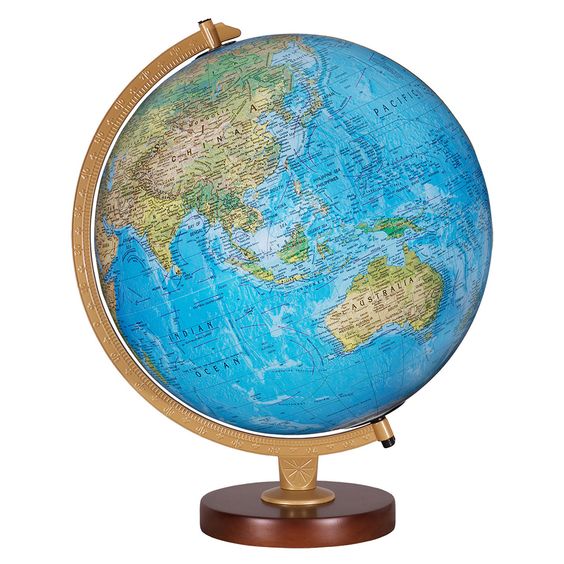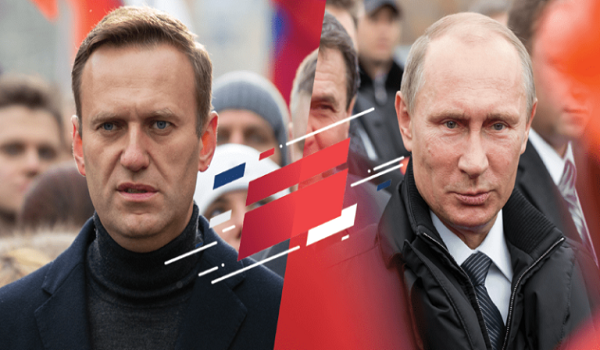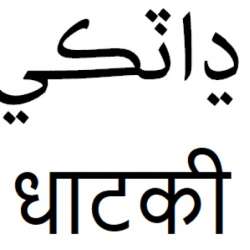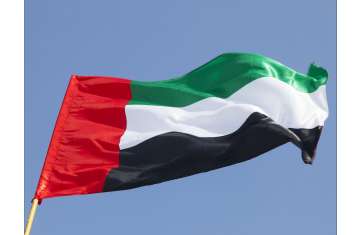Alexei Navalny’s memoirs are adamant: Putin’s Russia is based on corruption and “lies, nothing but lies.”
The late Navalny’s scathing assessment is a central theme in his memoir “Patriot” which is published this coming week in 11 different languages.
Alexei Navalny’s memoirs are adamant: Putin’s Russia is based on corruption and “lies, nothing but lies.”
“It will,” he has written, inevitably “crumble and collapse.”

The late Navalny’s scathing assessment is a central theme in his memoir “Patriot” which is published this coming week in 11 different languages.
Russia is a modern-day feudal state wrapped in the flag of nationalism and plagued with corruption, bribery, kleptocracy, cronyism, a crooked judicial system, and suppressed media and personal freedoms.
There are an estimated 100 oligarchs at the top of the Russian heap. Their cumulative net worth is about $500 billion. The exact number of oligarchs is constantly shifting as the man at the apex of this structure—one Vladimir Putin—likes to keep his underlings on their toes by firing, imprisoning and assassinating any oligarchs that dare to veer from fawning fidelity.
Putin himself is one of the wealthiest man in the world with estimates of his net worth ranging from $180 to $200 billion. His money is derived mainly from kickbacks and bribes from oligarchs who rely on his favour for their billions. Transparency International’s Corruption Perceptions Index ranks Russia at 141 out of 180 countries.
A prime example of this feudal-type corruption is the 2014 Winter Olympics at Sochi. At $50 billion they were the costliest Olympics in history. They didn’t need to be. It is estimated that a third of the bill went in kickbacks and cost overruns. The contractors were childhood friends of Putin, Arkady and Boris Rotenberg. Their construction company was the only one allowed to bid for the Sochi contract. They secured the contract to build the Kerch Strait Bridge linking Russia and Crimea on the same terms.
Exposing Russian corruption is a risky business. Navalny was a leading exponent of it. He was poisoned with Novichok in 2021. After recovering in Germany, he returned to Russia to be immediately arrested and imprisoned. He died in a remote prison in February.

A similar fate befell Russian lawyer Sergei Magnitsky. He exposed a $230 million tax fraud scheme involving Russian tax officials. Magnitsky alleged that officials stole from the state using fake tax refunds. He was arrested and died in prison under suspicious circumstances. Magnitsky’s death led to America’s Magnitsky Act which imposes sanctions on Russian officials involved in corruption and human rights abuses.
An oligarch who ended up in prison is Mikhail Khordovsky. He was the founder and CEO of the immensely successful Yukos Oil Company. In 2002-2003 he dared to criticize Vladimir Putin and donated money to opposition politicians. Khordovsky was arrested on charges of fraud and tax evasion. Yukos was hit with back-tax claims which forced the company into bankruptcy. Its assets were sold to Rosneft at a bargain basement price. Rosneft also acquired another oil company Bashneft in 2014 after its owner was arrested on money laundering charges. Rosneft is owned by the state and the state is owned by Putin.
In theory Russian courts are there to protect such abuses. But in 2010 Judge Olga Kudeshinka of the Moscow City Court revealed that judges faced pressure from politicians to rule in favour of influential parties. Levada—the Russian pollsters—reported that the public believe that 70 percent of the judiciary accept bribes and 58 percent say they are pressured by the government.
So, what about the media? Article 29 of the Russian constitution protects freedom of speech. But this did not protect Anna Politovskaya of “Novaya Gazeta” who dared to investigate abuses during the Chechen War. She was shot outside her Moscow apartment in 2006.
Mikhail Beketov, editor of a local newspaper in Kimski, was brutally beaten in 2008 after uncovering instances of local corruption. He died of his injuries in 2013. Even foreign journalists are at risk. The Wall Street Journal’s Evan Gershkovich was only recently release after being imprisoned in 2023 for espionage. Radio Free Europe, Radio Liberty, BBC Russian Service, Voice of America, TV Rain, have either pulled out of Russian or been banned.
The Russian authorities also have the power to block access to websites and they can order social media providers to remove anything they regard as fake news. The definition of fake news is basically anything that the government says is fake. Since the start of the Ukraine War fake news has been defined as anything that contradicts government statements. The Russian laws on fake news are covered by a series of laws and amendments known collectively as “On Countering False Information.” Breaking them carries a 15-year prison sentence.
The final outlet for protest is the streets, and Article 31 of the Russian constitution guarantees to the right to peaceful assembly. But that right is negated by the 2004 Law on Public Assemblies which says demonstration organizers have to obtain permission for a protest rally ten days in advance, and permission can be denied for any reason that the state desires. In addition there is the Foreign Agents Law, Federal Law on Combatting Extremism Activity and the Public Order and Security Law.
History has shown—and Navalny is right– that any regime built on suppression, corruption and lies is doomed to fail—usually quite dramatically. Russia suffered such a collapse twice in less than a 100 years. The problem is the damage that such a regime inflicts before its inevitable downfall.

World Review
Every geopolitical shift offers opportunities and dangers. The escalating war in the Middle East is no exception.
At the moment the world is focused on the dangers. But the opportunities are there as the major players realize the need to step back from the brink and consider measures that were hitherto unthinkable in order to avoid a catastrophe nobody wants.
The biggest opportunity could involve Iran’s nuclear weapons program.
There is a strong body of opinion in the US and Israel that the best way to deal with Iran’s nuclear weapons program is to destroy it. The problem with that is three-fold: 1- You cannot destroy the know-how 2- the necessary installations are deep underground, heavily protected and would probably require direct American involvement and 3- Destruction of Iran’s nuclear installations would only increase hatred of Israel and the US.
Many Israelis and Americans also fear that a religiously-zealous Iran would use nuclear weapons against Israel—and possibly the US—as soon as they acquire them.
Rubbish. The Iranians may be religious extremists, but they are not stupid. They know that they would be wiped out in any nuclear exchange.
To them a nuclear weapon is a deterrent against an Israeli—or possibly joint US-Israeli—nuclear or overwhelming conventional attack.
However, nuclear weapons do give Iran greater flexibility in any conventional scenario as any potential enemy would think twice about attacking a nuclear-armed Iran. This would mean a serious movement in the Middle East goalposts.
So how can the US (with Israel looming large in the background) and the Mullahs avoid escalation and a nuclear Iran. From the Iranian side, Washington would expect Tehran to immediately stop refining and testing missiles and enriching U-235 and converting it to fissile material. From the US-Israeli side, Iran would expect guarantees that Iran would not be attacked by either Israel or the US.
Iran is reckoned by the CIA to be seven months away from having THE bomb. An agreement could freeze development at the current level—or slightly more advanced– so that if it was attacked, Iran could quickly move to a nuclear capable position.
The above scenario is not impossible. According to intelligence sources, Supreme Leader Ayatollah Ali Khameini has not given the final go-ahead for nuclear weapons. He has also told newly-elected President Masoud Pazeshkian that he can resume nuclear negotiations with the five members of the Security Council and Germany.
There are other important tangential issues including: Iranian support for Russia’s war in Ukraine; Iranian support for Hezbollah and the Houthis; Israeli attacks on Hezbollah; Saudi and UAE attacks on the Houthis; the Syrian civil war; Western sanctions against Iran and Iran and China’s growing economic co-dependency.
All of —or some of—these issues could be dealt with as part of nuclear talks. Or nuclear talks could open the door to separate discussions on these problems.
***
British Foreign Secretary David Lammy has called it the “EU Reset.” It started this week with Lammy attending a regular meeting of EU foreign ministers in Luxembourg. The Foreign Office has promised more of the same.
The talks were on big global security issues—China, Russia, Ukraine, the Middle East, US elections—all those things on which it is very easy for the UK and EU to agree. Not on the agenda was the EU-UK 2020 Trade and Cooperation Agreement (TCA) which continues to bedevil or threaten to bedevil EU-UK relations.
The main sticking point is over fish. The fishing industry is not vital to the success of the British economy. It represents only .01 percent of the GDP. But It is an emotive issue that conjures up sea shanties, picturesque Cornish fishing villages and a simple if harder back to nature life. Because of the emotional content, British trawlermen were at the heart of the Brexit debate and have remained there.
British fishermen have a good deal under the TCA. After 2026 they will have the exclusive rights to all the fish in Britain’s Exclusive Economic Zone. That is 200 miles from the shore or the median line between Britain and its neighbours. Until 2026, EU countries can fish in British waters under licenses issued by the British authorities.
But the French in particular are unhappy. They are constantly trying to renegotiate the TCA to allow continued access to British waters and claim that the British authorities make it unnecessarily difficult for French trawlers—especially the small fishing boats—to obtain the necessary licenses during the transition period.
Fish are not the only outstanding problems involving the TCA. The British financial industry is unhappy about its lack of access to European financial markets. Police and both sides of the English Channel want to improve cooperation. The EU is worried that British industry will undercut their costs by lowering labour and environmental standards or introducing subsidies. EU red tape and customs checks are a problem for exporting Britons. And the Westminster Agreement has merely papered over the cracks in the Northern Ireland Protocol.
An established diplomatic ploy is to find an issue on which two sides can agree and work together. Build a sense of trust in working together and then use that trust to sort out the sticker problems. Global security, and possibly defense cooperation, is an area where Britain and Europe can and need to work together. It could lead to creating the trust needed to sort out the myriad of other problems created by Brexit.
***
Immigration is a hot topic in the US presidential elections. Trump is calling for military action to forcibly deport up to 20 million immigrants. They are, he asserts, drug dealers, rapists and murderers and claims that the Biden-Harris Administration has allowed 13,000 convicted murderers to enter the US as illegal immigrants.
Trump is deploying a common political trick of telescoping statistics. Yes, 13,000-plus murderers have entered the United States as illegal immigrants. But according to the Department of Homeland Security, they have taken 40-plus years to do so.
He also claims that the Biden-Harris Administration is letting these 13,000-plus murderers roam American streets to kill innocent native (White) Americans. As proof he claims that the Immigration and Customs Enforcement Agency (AKA ICE) is not monitoring these murderers. He is right. They are not.
That is because—as ICE has subsequently explained—the 13,000-plus do not come under the agency’s jurisdiction. They have either been deported or are locked up in federal or state prisons.
The actual facts are that according to the Cato Institute, the American Council on Immigration and scores of independent studies, there is a lower instance of criminality among illegal immigrants than among native-born Americans. There is a good reason for it. Illegal immigrants live on a knife edge. They know that if they commit a crime they will be sent to prison and when released they will be deported back to life they fled. Native-born Americans will simply go to prison.
Published under International Cooperation with "Sindh Courier"
 UAE shines as global incubator for startups in smart mobility solutions
UAE shines as global incubator for startups in smart mobility solutions
 Blast at mosque in Nigeria kills 5, injures over 30
Blast at mosque in Nigeria kills 5, injures over 30
 UAE marks 2025 with global competitiveness milestones
UAE marks 2025 with global competitiveness milestones
 Japan expects growth to accelerate next year with fiscal stimulus
Japan expects growth to accelerate next year with fiscal stimulus
 OPEC Fund to co-finance up to $2 billion to accelerate development across Africa
OPEC Fund to co-finance up to $2 billion to accelerate development across Africa
 UAE-EU Dialogue on Human Rights holds 13th meeting in Abu Dhabi
UAE-EU Dialogue on Human Rights holds 13th meeting in Abu Dhabi
 UAE condemns terrorist attack in northwestern Pakistan
UAE condemns terrorist attack in northwestern Pakistan

 UAE shines as global incubator for startups in smart mobility solutions
UAE shines as global incubator for startups in smart mobility solutions
 Blast at mosque in Nigeria kills 5, injures over 30
Blast at mosque in Nigeria kills 5, injures over 30
 UAE marks 2025 with global competitiveness milestones
UAE marks 2025 with global competitiveness milestones
 Japan expects growth to accelerate next year with fiscal stimulus
Japan expects growth to accelerate next year with fiscal stimulus
 OPEC Fund to co-finance up to $2 billion to accelerate development across Africa
OPEC Fund to co-finance up to $2 billion to accelerate development across Africa
 UAE-EU Dialogue on Human Rights holds 13th meeting in Abu Dhabi
UAE-EU Dialogue on Human Rights holds 13th meeting in Abu Dhabi
 UAE condemns terrorist attack in northwestern Pakistan
UAE condemns terrorist attack in northwestern Pakistan












Comments